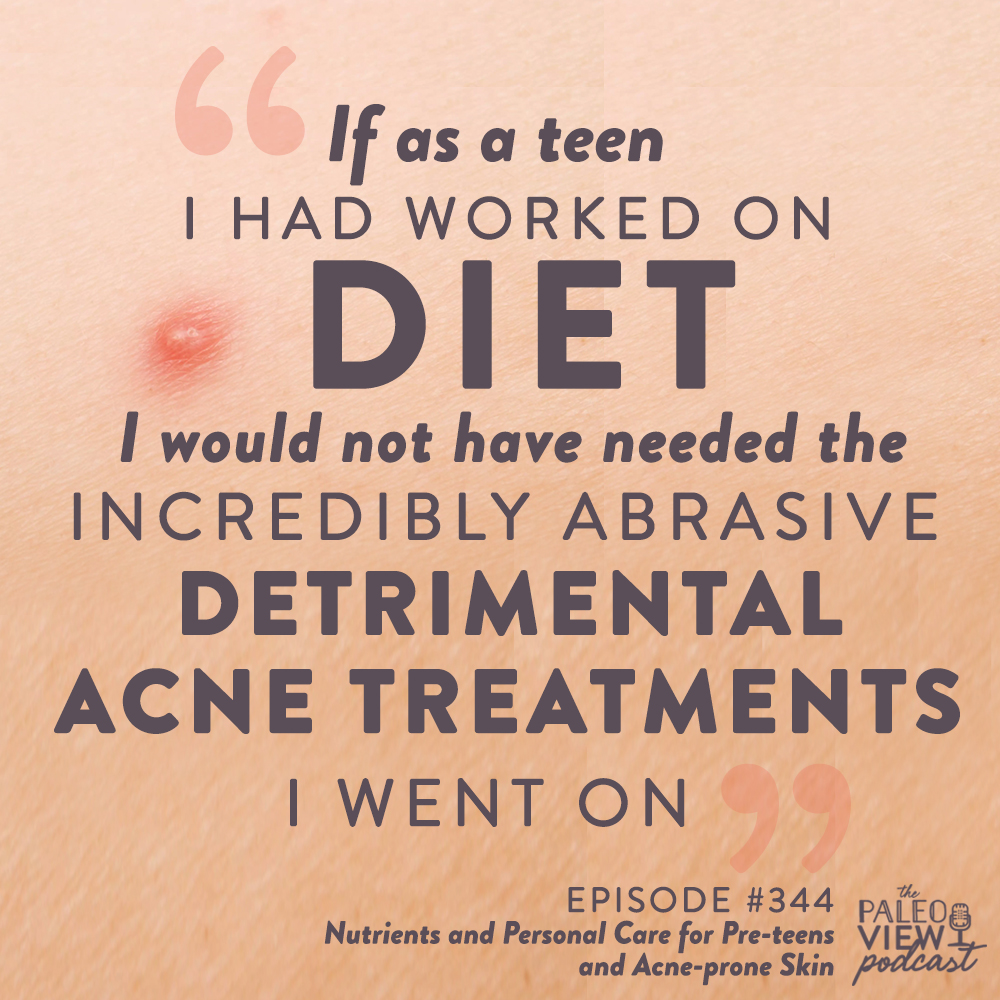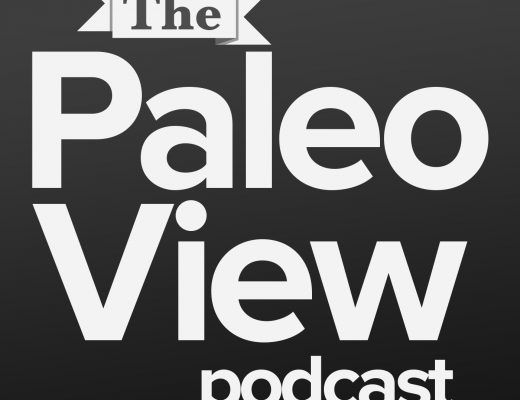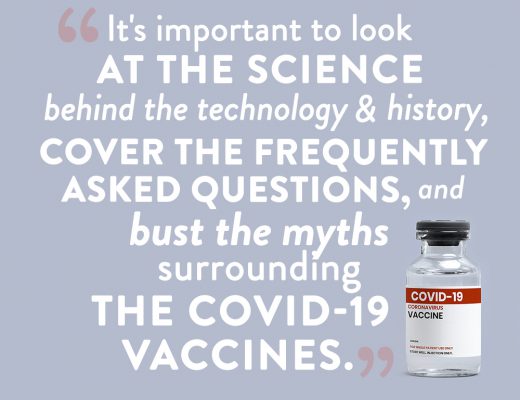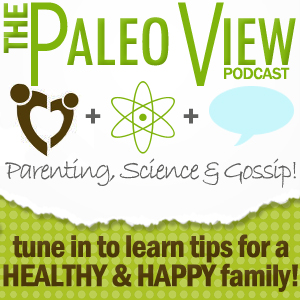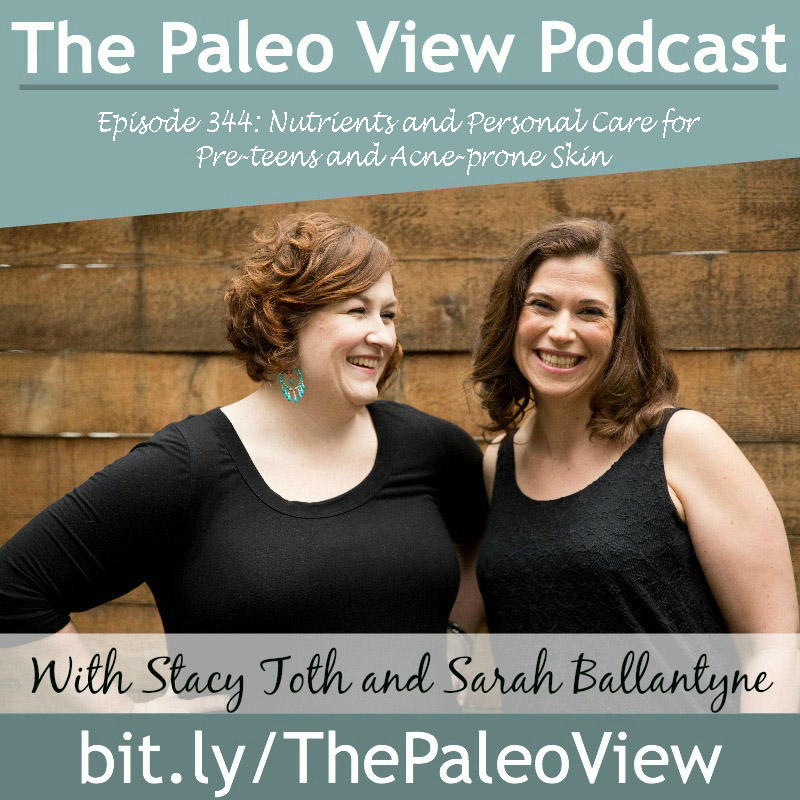
In this week’s episode, Stacy and Sarah answer a listener question about how to treat acne naturally, especially in kids going through puberty. What should they be eating? What skincare products are the best? And what nutrients are best for acne? Listen to find out!
Click here to listen in iTunes
or download and listen by clicking the PodBean Player below
![]()
If you enjoy the show, please review it in iTunes!
The Paleo View (TPV), Episode 344: Nutrients and Personal Care for Pre-teens and Acne-prone Skin
-
-
(0:00) Intro
- After all the crazy schedules and travel, The Paleo View Podcast is back to the norm, doing weekly episodes using an outline and everything!
- A huge thanks to our amazing episode sponsor, Joovv!
- Their red light therapy lights are at-home devices that deliver the same amount of energy at the same wavelengths that used to be only available at medi-spas.
- To learn more about the incredible benefits of red light therapy, check out our past episode
- Sarah has been using hers for almost 2 years and she notices when she goes without for more than a couple days. Joovv is the perfect combo of science plus an incredible personal experience!
- Stacy has also had positive results with her Joovv red light!
- Joovv’s red light therapy units are Bluetooth enabled, they work with Alexa, and they’re modular!
- To check them out, head on over to joovv.com/paleoview!
-
(9:00) Listener question
- Hi Sarah, I wonder if you might have some advice on diet and possible supplements for girls going through puberty? My 11yr old is suddenly experiencing lots of pimples on her face. We stick to a mainly paleo/Keto based diet. No wheat or grains and minimal sugar. I am trying to get her to cleanse her face twice a day – this is a slow process.If you have any health info or products specific to puberty please let me know.
- Stacy says the best thing you can do for acne is to treat it from the inside. Acne isn’t just a puberty problem – it can be a problem all through life.
- There are different triggers for different people, ranging from different foods to simply not washing.
- Acne is inflammation so we have to treat it that way.
- Parents, this can be a lot to take on for a kid so don’t let perfect be the enemy of the good.
-
(14:48) Eating for acne-free skin
- The food that is beneficial for acne is what we talk about the show all the time.
- Get your nutrients in adequate quantities from food! Eat seafood, organ meats, and a lot of vegetables.
- Avoid foods that feed bad gut bacteria and compromise gut health.
- Dial in your vitamin D level (Vitamin D deficiencies can drive a lot of small health problems)
- Eat plenty of plants for phytochemicals and antioxidants.
- Because keto doesn’t incorporate many plants, it’s best to avoid that for acne
- Root vegetables, like sweet potato, are fantastic for the gut microbiome
- Every vegetable family feeds a different group of beneficial bacteria. This includes eating both the raw and cooked forms.
- Probiotic supplements can be very helpful.
- Acne is caused by normal shifts, which is normal!
- Hormonal shifts can increase inflammation in the skin
- They increase oil production in the pores (sebum), which increases the likelihood of pores getting clogged by skin cells
- This creates the perfect environment for the production of acne-causing bacteria called Propionibacterium acnes
- Yes, diet and gut health are important, but for most kids it won’t be everything. It will likely improve it, but won’t make it go away entirely.
-
(29:16) How to treat acne with a skincare routine
- The conventional treatments are really harsh, chemical treatments which dry out the skin and drive inflammation.
-
General vitamins for skin health:
- Vitamin A
- Vitamin C
- Vitamin D
- Vitamin E
- Selenium
- Zinc
- DHA &EPA
- Flavonoids
- Glycine
- These are found in foods like seafood, avocadoes, olives, fresh fruits and vegetables, green tea, broth or collagen, and organ meat.
- Stacy has dealt with skin issues and acne her entire life. Stacy notices when she manages her inflammation it makes a huge difference in her acne.
- For Stacy’s son Cole, using a toner has been very beneficial. A toner is what you use after washing your face because it protects the skin.
- The two toner pads that have worked really well for him are the Beautycounter Anti-aging toner pads and the new men’s line, Counterman toner pads.
- It’s important to determine what type of acne your pre-teen has: oily skin, dry skin, or hormonal acne. If you use a skincare line that’s not right for your type of acne it could cause more problems.
- Stacy’s other son, Finn, finds that using a cleansing balm works really well for him. It’s a type of moisturizer that you can either wash off or leave on.
- Stacy uses a product called Dew Skin, which contains zinc, a mineral that helps fight acne.
- Charcoal-based products can also be very beneficial for acne.
-
(42:40) 4 nutrients that specifically reduce acne
- Deficiency of these four vitamins (A, D, E, and Zinc) has been linked to acne.
-
Vitamin A
- Retinoids are the most effective treatment for acne because of their ability to regenerate and heal the skin rapidly so that you quickly have fresh skin.
- Anything that’s animal fat-based (like a tallow balm) will have vitamin A.
- A great whole food source of Vitamin A is beef liver capsules.
- Be careful of supplementing with vitamin A because it can cause Vitamin A toxicity and weaken your skin’s ability to protect itself.
-
Vitamin D
- Deficiency is linked with acne. There’s no evidence that topical vitamin D is particularly helpful.
- Topical creams like an animal fat-based balm or a cream with mushroom extract.
- Get your vitamin D levels tested, supplement appropriately, and then retest.
-
Vitamin E
- Studies show both topical and supplementation is effective. In all studies, it was used in conjunction with other acne-preventing ingredients.
-
Zinc
- Studies show addressing zinc deficiency is very important. Zinc is important for gut barrier and microbiome health, immune health, and skin health.
- Topical zinc can help reduce inflammation in the skin, specifically zinc oxide or non-nano zinc.
- Stacy says to encourage your teen to do something. The approach she takes is asking “would you like help with that?”
- Stacy specializes in safer skincare so if you would like help determining your skin type and finding the best products, get in touch with her! She’d be happy to help you out.
- There are also a lot of studies that show red light therapy is very effective at treating the root of acne.
- It helps normalize sebum production, improve the cellular health of the skin, and reduces inflammation in the skin.
- The studies that show the greatest effects use the same wavelengths and energy deposition as Joovv.
- Sarah used to gets a couple zits at the same time every month, but since using her Joovv regularly, she now only gets a few a year (mainly when stressed or eating sugar).
- It can be challenging to get your kid to stand still in front of red light for 10-20 minutes, but it’s so worth it!
-
- Get your questions in! We want to hear from you! And there’s no end to questions we can answer and topics we can address!
- Engage on social media! That’s how we get feedback!
- Thank you for listening.
Resources
TPV Podcast, Episode 140: The Danger of Ketogenic Diets
TPV Podcast, Episode 326: The Olive Oil-cast!
TPV Podcast, Episode 328: The Amazing Health Benefits of Drinking Tea
TPV Podcast, Episode 302: Is Blue Light Harmful and What Should I Do?

